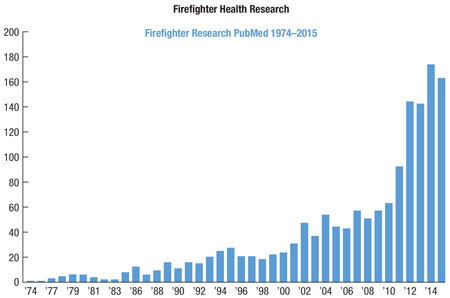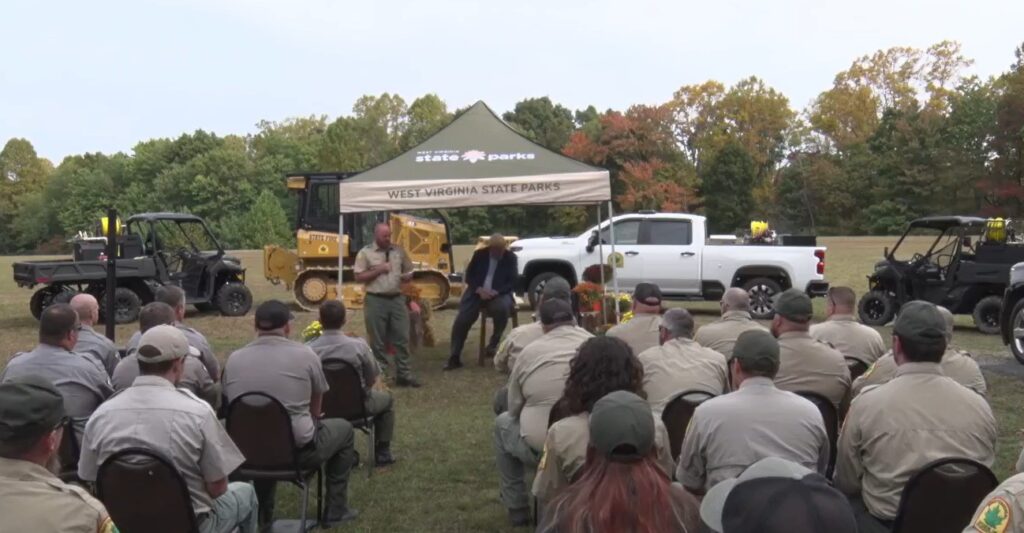
By Robert Tutterow
National Fallen Firefighters Foundation (NFFF) Life Safety Initiative 7 states: create a national research agenda and data collection system that relates to the 16 Firefighter Life Safety Initiatives.
In November 2015, the NFFF held its third National Fire Service Research Agenda Symposium in Arlington, Virginia. The previous symposia were held in 2005 and 2011. The symposium brought together representatives from major fire service organizations and researchers from academia.
Purpose
The symposium report from 2011 states: “The intent of the research symposia is to provide a reference source and a starting point to direct research efforts and funding toward those priorities that have been identified by the fire service. Most of the research efforts that focus on fire service issues are performed by universities, public and private sector research organizations, and independent researchers, often working in partnership with fire departments or fire service organizations.” Much of recent research funding has come from the Fire Prevention and Safety Research and Development Grants as part of the Assistance to Firefighters Grant (AFG) program under the purview of FEMA’s Grant Programs Directorate. There is no requirement that a research project be identified in the NFFF’s Research Agenda Report to get funding. However, during the grant review process, it is always helpful if the grant writers can reference a project to one or more of the topic areas identified in the NFFF report.
 |
| Figure 1: Firefighter Health Research. Graph furnished by Dr. Sara Jahnke, Director of the Center for Fire, Rescue and EMS Health Research at the National Development and Research Institutes Inc. |
There has been a recent surge in firefighting research projects that have greatly benefited the fire service, such as the Underwriters Laboratories and National Institute of Standards and Technology fire behavior reports. Figure 1 shows the increase in just firefighter health research alone in the past 40 years.
Focus on Fire Service Programs
It is easy to think of something like a research symposium to be focused on issues like emerging technologies. However, all of the symposia, including the most recent one, tend to focus more on what and how the fire service does things rather than product development or the latest technological advances. There is lot of emphasis on trying to understand the effectiveness of existing programs-such as fire department health and safety-as well as developing new programs. Naturally, there were several projects identified that relate to firefighter cancer prevention.
Research Focus Areas
The 2015 symposium was divided among the following seven focus areas :
- Community Risk Reduction
- Data Management
- Emergency Operations
- Health and Wellness
- Occupational Diseases of Firefighting
- Tools and Equipment
- Wildland Firefighting.
Each group consisted of seven to nine members plus a three-person facilitation team. There were also 17 observers, of which 11 were jurors. This was the first time the symposium used the jury process. The jurors rotated among the seven groups as observers and then worked as a jury to reconcile any overlaps and any inconsistencies among the groups.
At the beginning, each group received a copy of the 2011 NFFF report for review. They were tasked with determining if those issues needed to remain on the agenda list and if they needed any modifications. After that, they worked to identify new research needs. They identified 50 needs.
Here is a brief sampling of the research topics identified.
- Community Risk Reduction: Evaluate the economic impact and savings from emergency response operations and measure the effectiveness of communities that adopt and enforce codes vs. communities that do not.
- Data Management: Research ways to change the culture of the fire service to further embrace data management, especially at the station level to stress the importance of accurate and thorough data entry. As an old friend once said, “The side with the best data wins.”
- Emergency Operations: Continue ongoing research on fire behavior and develop on-scene risk assessment tools to direct operations. Research contributing factors that lead to firefighter injuries in nonfire emergencies.
- Health and Wellness: Develop cost-effectiveness tools to demonstrate the effectiveness of firefighter health and wellness programs. Identify and overcome barriers to cessation of tobacco products and e-cigs as well as alcohol, illegal drug, and prescription drug abuse.
- Occupational Diseases: Continue the ongoing research into acute and chronic exposures. Identify and determine the cost effectiveness of health programs.
- Tools and Equipment: Continue to evaluate the effectiveness of personal protective equipment (PPE) cleaning procedures, especially as it relates to carcinogens, and develop science-based criteria for PPE retirement. Other areas include respiratory protection during overhaul, user-friendly accountability systems, radio failures, and drones.
- Wildland Firefighting: Identify respiratory contaminants in wildfires. Research the total health environment and needs of the wildland firefighter.
Overall, the research needs are more about what we do rather than what we use.
ROBERT TUTTEROW retired as safety coordinator for the Charlotte (NC) Fire Department and is a member of the Fire Apparatus & Emergency Equipment editorial advisory board. His 34-year career includes 10 as a volunteer. He has been very active in the National Fire Protection Association through service on the Fire Service Section Executive Board and technical committees involved with safety, apparatus, and personal protective equipment. He is a founding member and president of the Fire Industry Education Resource Organization (F.I.E.R.O.).

